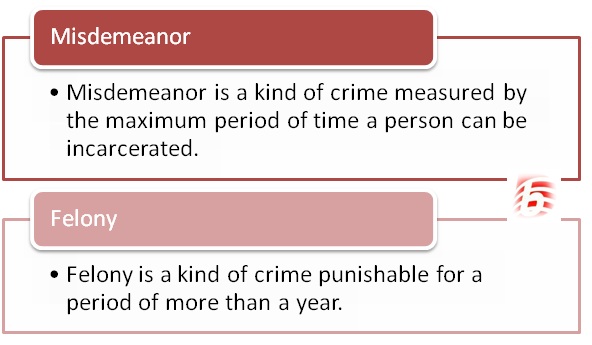Felony vs Misdemeanor
Felony and misdemeanor are two distinct legal terms that should not be used interchangeably, as there is a significant difference between them. Misdemeanor refers to a type of crime that is measured by the maximum period a person can be incarcerated, while a felony is a type of crime that is punishable for a period of more than a year. In simpler terms, crimes punishable by longer periods of time are called felonies, while those punishable by shorter periods are referred to as misdemeanors. Some people argue that any crime not classified as a felony can be considered a misdemeanor.
What is a Felony?
A felony is described as “a minor wrongdoing.” If a person suffers a loss to their property or wealth of $5,000 due to intentional robbery, the crime committed may be considered a felony. The consequences of a felony are severe, as it is a crime committed on a larger scale. Adults found guilty of committing a felony may find it extremely difficult to find suitable employment because the crime is entered into their record books. Felonies are often committed by adults due to the nature and magnitude of the crime.
What is a Misdemeanor?
A misdemeanor is defined as “a crime regarded in the US and many other judicial systems as more serious than a misdemeanour.” In cases of robbery, the classification as a felony or misdemeanor depends on the amount of money lost through robbery. For instance, in a given US state, if a person incurs a loss of about $500 through robbery, the crime committed may be considered a misdemeanor. If someone is found guilty of a misdemeanor, the crime is entered into their record books, making it difficult for individuals, such as 18-year-olds, to find employment.
Key Takeaways
- Misdemeanor crimes are measured by the maximum period a person can be incarcerated, while felony crimes are punishable for a period of more than a year.
- Both misdemeanor and felony crimes can make the life of the criminal very difficult since these crimes are included in their records.
- It is the responsibility of firms and organizations to verify the personal record books of applicants before offering employment, and to avoid hiring those with such crimes in their records.
